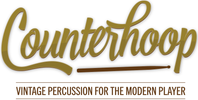All compositions S. Dunbar & R. Shakespear / Ixat Pub., BMI
Produced under license from Taxi Productions
Recorded in Kingston, Jamaica for Taxi Productions
Jacket made in Canada
Texts in back cover:
Sly and Robbie, the "Rhythm Twins," have formed the backbone of the majority of reggae music produced over the past decade. Together, they have changed the direction of Jamaican popular music more than once in that time; it is rare that two individuals have such a far-reaching effect on a musical form While they have branched out into rock and funk production, they still remain the essence of today's popular trends in reggae after ten years of working together. They still set the pace for Jamaican music, perhaps more so now that they are able to bring outside influences into the music, making it more diverse and boosting its international potential. Sly and Robbie have come far from their ghetto beginnings, but they have never left the street level of their music.
They have played and recorded with artists such as Bob Dylan, Grace Jones, Mike Jagger, Joan Armatrading, Herbie Hancock, Joe Cocker, Gwen Guthrie and Carly Simon. Neither one ever limited himself to listening just to reggae. Robbie grew up enjoying rock, and country and western as well. Well versed in many kinds of music, they fit easily into any kind of session and have been in ever increasing demand. Their principal goal, through, remains greater exposure for reggae music. In their own playing they borrow heavily from funk and rock. Sly keeps up with all the latest developments in percussive technology; they create their own brand of music, one unquestionably still roots reggae but with an international flavor that makes it at once more accessible yet still full of bite and soul. With their session work, touring with Black Uhuru for years working with foreign producers and artists in the States and elsewhere, producing for their Taxi label, Sly and Robbie live a life totally dedicated to music.
Robbie began his musical career as the protege of Aston "Familyman" Barrett, the bass player who with brothers Carlton on drums, formed the nucleus of both Lee Perry's original Upsetters and, later, the original Wailers. At first he imitated Familyman; he got so good that not even Familyman could tell them apart. When Robbie played on The Wailers tracks "Catch A Fire" and "Concrete Jungle," people insisted it was Familyman on bass. Robbie's first session was on Errol Dunkley's " You'll Never Know." Sly first went into the studio to work with Ansel Collins in 1969 on his massive hit "Double Barrel." It was Sly who first owned the Taxi label back in 1974.
The two met back in the early 70s when playing for different bands across the street from the other. During breaks, they would each wander across the road to admire the other's work. Still, they never played on a session together until 1974 when they found themselves both in Channel one, where Sly was then regularly employed to record rhythms for Bunny Lee. Before long, Sly and Robbie became the musical backbone of Channel One, creating what became known as the Channel One Sound. Although they were together for a while, along with many other musicians at various times, as The Aggrovators (playing mainly for Bunny Lee), it was as The Revolutionaries that they are best known. The rhythm tracks they laid down at Channel One under that name have become as much classics as the original Studio One tracks they were often updating. The sound of The Revolutionaries became distinctive of a certain period and a certain philosophy - one might say - of reggae (such as the rockers sound, the militant beat). The instrumentals had titles like MPLA, IRA, Death, Kissinger, Angola - Signifying the revolutionary feeling behind the music and the political consciousness of that period.
During this time, Sly and Robbie also spent a lot of time on the road, first with Jimmy Cliff and with the Mighty Diamonds, traveling to England and around Europe, to Africa, throughout the Caribbean as well as North America. Robbie remembers living on bread and water, saving all their extra money to put towards setting up their own label when they returned to Jamaica.
In 1978 they realized their dream of having their own record label and revived Sly's Taxi label. One of the first artists to appear on it was Michael Rose, later lead singer for Black Uhuru. The first Sly and Robbie-produced LP was Black Uhuru's Showcase album (later repackaged by Heartbeat as Guess Who's Coming to Dinner, HB-18). When Black Uhuru moved to Island, Sly and Robbie produced a series of fine albums and once more toured worldwide. Taxi has been a very successful company, with releases by Gregory Isaacs, Dennis Brown, Jimmy Riley, Yellowman, Sugar Minott and many other top names in reggae. Sly & Robbie have been known as well for their instrumental releases. In an era when most albums without vocals are released as dub albums (Albums cut to be vocal albums, but with the vocals removed), Sly and Robbie have issued instrumental albums showcasing their talents.






